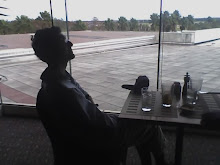(Sharansky) and a tight group of ideological allies … believe that the Jewish Agency must now become a global promoter of Jewish identity, particularly among the young. Peoplehood, according to its proponents, is defined as a sense of connectivity between Jews who share a common history and fate.
This could spark the biggest redefinition of Jewish identity since Moses came down from Mount Sinai, and it seems like a positive step. The Diaspora scattered us across the globe, and its effects keep us disunited today. Most of my coreligionists in the greater Boston area of Massachusetts are fellow Ashkenazim and not Sephardim or Mizrahis. When I think Jewish cuisine, I imagine bagels, lox and latkes instead of a Mediterranean meze. There are differences in how the different strands of my people celebrate holidays, but I couldn’t tell you what those differences are.
That said, Jewish organizations in Greater Boston have taken laudable measures to welcome Jews from other countries into the community. Several years ago, an Ethiopian Jew working in the Boston area spoke about her heritage at the Vilna Shul. The Boston Jewish community has also come together to mark the anniversary of the tragic bombing of a Jewish center in Buenos Aires, Argentina. These steps are heartening, for belonging to a people implies a sense of collective care, and we can’t care about each other if we don’t know about each other: who we are, where we live, how we worship. (Argentina was No. 7 on the list of countries with the largest Jewish populations in a 2006 study.) More steps in this direction would certainly be welcome.
What is troubling, though, about Sharansky’s idea of peoplehood is that it “is not predicated on having any kind of religious or spiritual identity,” the Forward reports. One possibility for this is rooted in Sharansky’s own experiences in Israel. In “Israel at Sixty: An Oral History of a Nation Reborn,” he said:
(There) are so many groups that belong to different worlds that religion becomes not something that unites us with the generations before and with our future, but a political tool that divides people, a lack of tolerance among different groups…
Yet it seems that if Sharansky encourages Jews worldwide to think of ourselves as one people across many cultures, he can similarly encourage us to think of ourselves as one people across many religious wavelengths. No matter where we are today, our ancestors were there in some form when Moses recited the Ten Commandments. (Whether they heeded them or not is another story.)
Overall, though, Sharansky’s idea deserves praise. The Diaspora may have scattered us, but appreciating our cultural diversity can bring us back together.




No comments:
Post a Comment